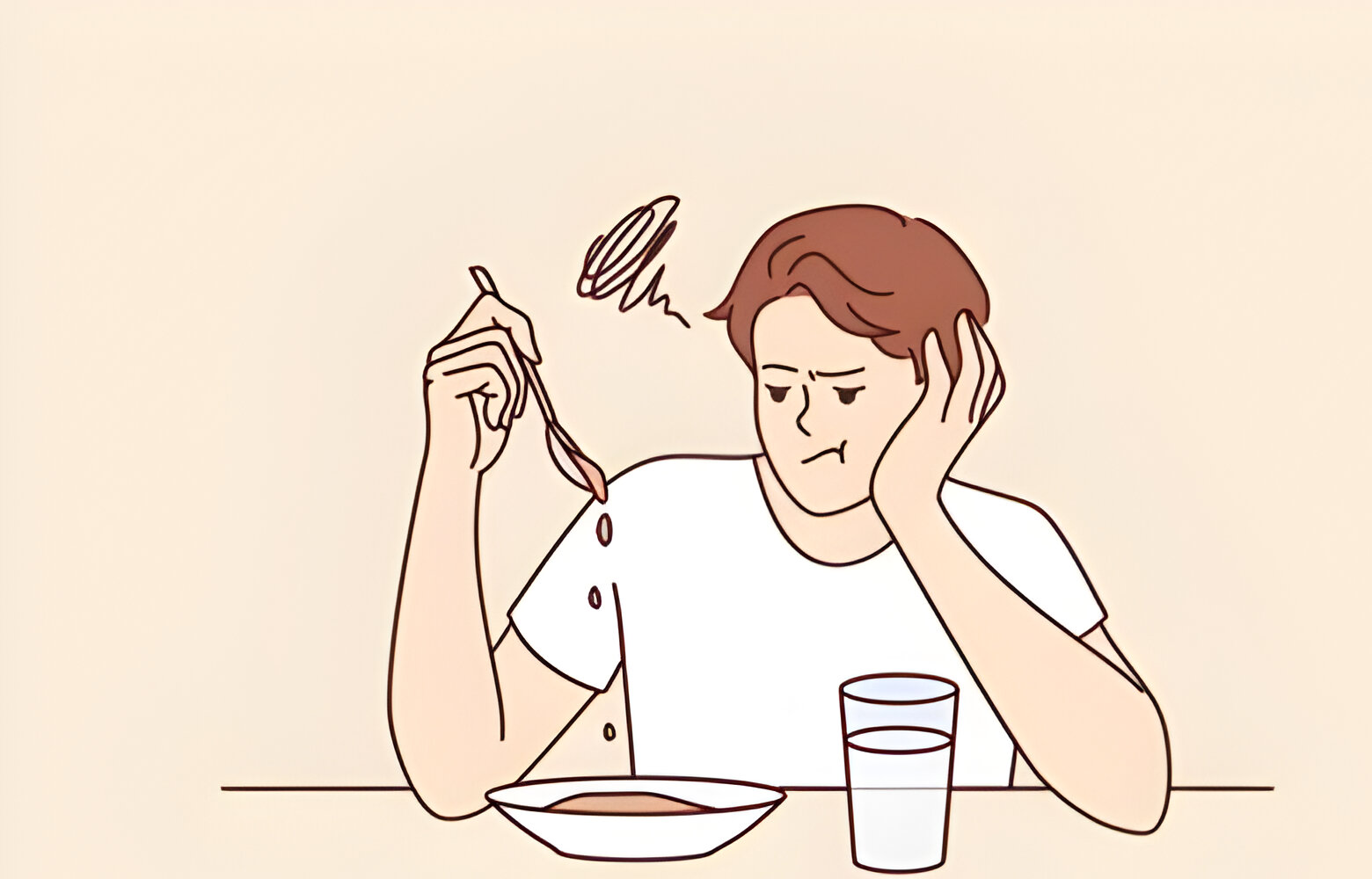A blow to the head or a head trauma sometimes causes the loss of taste and smell. More often, this change slips under doctors’ watchful eyes, bent to heal the major injuries. Even for patients with thoughts on a speedy recovery, it hardly crosses their minds to consider their sense of smell as being affected. So, it is not very uncommon that loss of smell and tast after head trauma often goes neglected and remains undiagnosed for a long time after the injury.
But smell loss is more than a bit of an inconvenience. It is much more than it seems to be. It can truly change a person’s quality of life as it clearly impacts his/her eating habits, which consequently might affect weight gain or loss and other daily pursuits.
Causes of Loss of Smell and Taste After Head Trauma
Taste and smell are very closely related. Actually, the taste buds in your mouth can only sense simple tastes. It is your nose that actually amplifies your taste buds. In this sense, you can experience a wide variety of tastes.
This is why most people report losing their ability to smell and taste after receiving a knock on the head, not one of the other senses. In other words, if the brain injury or bump on your head hurts the brain parts that control smell, your ability to taste will also suffer. But sometimes, only your sense of smell is affected.
Brain Damage
Consequentially, a head injury resulting in brain injury may cause the individual to either lose their sense of smell and taste or experience a reduced ability in these functions. Loss of smell and tast after head trauma occurs when nerves that control smell and taste are damaged or when damage is sustained to the specific areas of the brain that control these senses.
Nerve Damage
Nerve damage to the face and nose and brain damage can also cause loss of smell and taste. The nerves will malfunction badly in passing the signal caused by odor molecules in a chain up to the olfactory bulb for smell and taste receptors for taste.
Sinusitis or Congestion
Inflammation or a stop in the flow within the sinuses can also lead to a disease of smell or taste. This can occur through either injury in the head that impairs the sinuses or infection and allergies.
Brain Regions Involved in Taste and Smell Perception
What if you suffered a brain injury and you lost the ability to taste or smell things? Depending on which part of the brain was damaged, this could be one of the side effects. We will look at three of the most important parts of the brain involved in your sense of smell:
- The orbitofrontal cortex—it’s up by and behind your eyes.
- It’s your insula: under your ears.
- The piriform cortex lies between the two.
There are also much smaller parts of the brain that handle our sense of smell, called the olfactory regions. Also, the thin piece of bone located right behind the nose, known as the skull’s cribriform plate, could break and cut the joined nose, resulting in loss of smell.
Disorders for Loss of Smell and Taste After Head Trauma
A wide array of issues can impact our sense of smell and taste. Still, interestingly, the knocking of one’s head could establish these various disorders tied to smelling and tasting.
Here are a few examples that have to do with the sense of smell:
- Anosmia means the total lack of smell.
- Hyposmia is a general term to describe the partial loss of the sense of smell.
- Hyperosmia is an enhanced smelling power.
- Phantosmia is the experience of smelling something that is not there.
- Dysosmia is a condition in which olfactory sensations are distorted. For instance, dynamics have reported rotten flowers as smelling fresh or sour milk as quite alright.
Apart from these, the problems causing taste disturbances are just as varied:
- Ageusia refers to the absence of a sense of taste.
- Dysgeusia — Serves bad food taste.
- This bad taste is a perception that you live with constantly with parageusia.
- Dysgensia Shame leaves a strange taste in your mouth that won’t quite go away.
Effects of Changed Taste and Smell After Head Trauma

Imagine living without the faculty of taste or smell, any sense of anything around you. It is more distressing than one can think. Weight loss just through losing that sense of smell may be one unpredicted challenge.
You may understand that maybe some quantities of weight are being lost, and you ask how. This is because you do not taste what you eat, so eventually, the loss of appetite may occur. This may bring about unhealthy weight loss.
And you may also keep falling to food poisoning more regularly! In the absence of a sense of smell, it is really tough to identify any out-of-date food. This would, in turn, mean that you’d be more likely to eat that out-of-date food and fall sick from it in the form of food poisoning.
Do you know how you get those wisps of scent that seem to bring you back into time? Well, our ability to smell is directly linked to the brain. The olfactory bulb, a part meant for smelling in the brain, is connected to the amygdala. These are the key elements in a person’s emotional and personal memory. So, the inability to smell may impact one’s ability to remember.
Also, there is the risk of potential fire hazards! With loss of smell and tast after head trauma, the capacity to detect smoke or harmful chemicals is clearly reduced. Lastly, it dampens your spirit. Not being able to relish good food and its smell or aroma may make you lose any interest in social activity. This can directly lead to isolation and, consequently, to depression.
Reclaiming Loss of Smell and Taste After Head Trauma
Losing the power of taste and smell may be most unfortunate after a head trauma. Consider the distressing condition of a patient who had sustained a head injury and whose taste and smell impairments had become so severe that he/she couldn’t tolerate solid food and would actually require a tube to be fed.
Fortunately, some medicines, like Gabapentin, have helped patients experience disgusting or altered tastes and smells after suffering from such a traumatic head injury.
However, few, if any, widely available treatments exist for anosmia, a complete loss of smell. If your anosmia is caused by brain damage, your doctor may recommend olfactory training.
In a related therapy, the therapist has the patient smell strong, pungent smells like roses, eucalyptus, and lemon to stimulate the olfactory nerves in the nose. When the stimulation arises in the neurons, the brain actually relearns how to smell.
Only 30 percent of patients with brain injuries succeed in this form of therapy. It can also be that the damage causing your loss of smell is in the nasal passage itself, not in the brain. If that is the case, then treating anosmia may become much easier.

Handling Loss of Smell and Taste After Head Trauma
Loss of smell and tast after head trauma can be tiring, but it is not so hard to adapt to. You would have to learn to go about your life in a new way that only uses half of your other senses.
Given these, we have compiled a couple of simple and effective pointers to deal with the inability to taste and smell due to a head injury:
One that you can do is ice cube stimulation: sucking on an ice cube for a minute immediately before consumption may restore taste sensation, particularly for the consumption of sweet foods and beverages. It is no longer surprising that such methods work regarding taste rebirth, but extensive research is warranted to know why or establish that it will work well; however, it is worth trying.
Another good idea may be to use seeds and nuts in your meals. Although they can never restore your taste and smell, they can give your foods some change in texture so that they are more varied and exciting. They can even assist in stimulating your appetite to help you actually gain weight back.
Staying safe is also key. Since you might have difficulty identifying when something has gone off, ensure that it is thrown away upon reaching its expiry date. Also, if you live alone, it would be wise to help retain the smoke and gas detector to prevent major accidents.
Another strategy might be to appeal to the remaining senses using flavor boosters. They might not do much for you, but flavor enhancers really make the food taste better for most people. While living with the loss of smell and taste may be hard, these strategies can help make life a little easier.
Bottomline
So, for you or for somebody you know who is feeling a change in taste or smell following a head trauma, please delay no longer in attaining medical help and ways to preclude the situation. After all, there is still hope for recovery and possible adjustment with the right tools and support.

